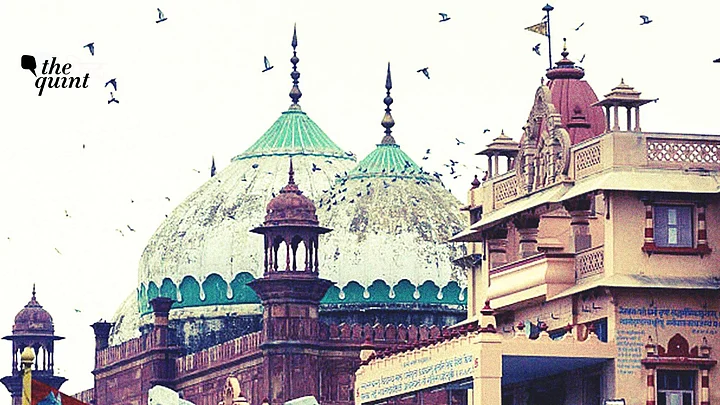The Allahabad High Court is expected to deliver its verdict in the long-standing Krishna Janmabhoomi-Shahi Idgah case on Thursday, 11 January.
Earlier, the court had reserved its judgment after ordering a primary survey to be conducted at the Shahi Idgah mosque, which stands adjacent to the Krishna Janmabhoomi Temple in Uttar Pradesh's Mathura.
After the Allahabad High Court ordered the survey to be conducted by a three-member team, the Muslim side moved the Supreme Court against the High Court's decision. However, the apex court refused to stay the order.
A Recap of the Case
On 19 May 2022, a Mathura court allowed the re-opening of a lawsuit filed over a piece of land on which stands the Shahi Idgah mosque, adjacent to the Katra Keshav Dev Temple, a Hindu temple.
The two structures have sparked a legal and political battle as the 13.77-acre plot is under contention for allegedly housing the Shahi Idgah right above the purported ‘janmasthan' or birthplace of Lord Krishna.
"The 13.37-acre plot belongs to Hindus and a temple should be constructed there. The land is exactly where Lord Krishna was born, and this is written in our ancient scriptures and books. It is already proven and I know this because I am a Brijwasi."Mahendra Pratap Singh, petitioner
While ‘removal of the mosque’ is a common thread across dozens of petitions filed in the Mathura courts, other pleas included the demand for a video survey of the area, the right to offer prayers, and to carry out an excavation at the site.
"The real conflict around the area started after the 1990s. There were no security personnel here before that. Today, crores are being spent in the name of security. There is no need for security if communally charged speeches are not given. Even the Places of Worship Act says that the Ayodhya case was an exception. Now, the case of Shahi Idgah has been admitted to the court."Shamim, cooler repair worker
But Who Owns the 13.77 Acres of Land?
The Shahi Idgah mosque was reportedly built on the orders of Mughal Emperor Aurangzeb in 1670 AD after he reportedly decided to demolish Vir Singh's Kesavadeva temple. Vir Singh was reportedly a Rajput ruler of Orccha and a Mughal ally.
Thus, the area in question was non-agricultural State land. From the Mughals to the Marathas to the British, the 13.77-acre plot passed through many hands until 1944, when Jugal Kishore Birla bought the land for Rs 13,400 and set up The Shri Krishna Janam Bhoomi trust which acquired ownership rights to the temple.
Later in 1956, the Shri Krishna Janamasthan Sewa Sangh was set up to manage the temple affairs. Its name was later changed to Shri Krishna Jamasthan Sewa Sansthan.
However, in 1968, a 'compromise agreement' reportedly ensured that the Temple Trust receive ownership of the land while management rights of the mosque were given to the Idgah Committee.
The agreement reportedly said that the Temple Trust a legal right to stake claim on the Shah Idgah mosque. But petitioners had challenged the legal validity of the 1968 agreement.
